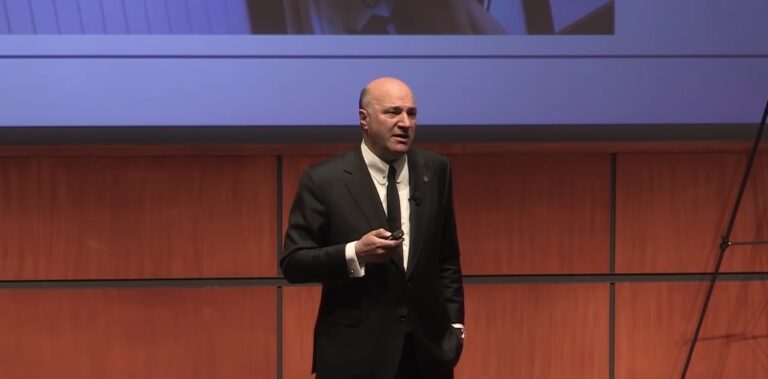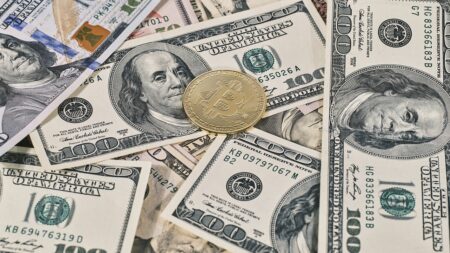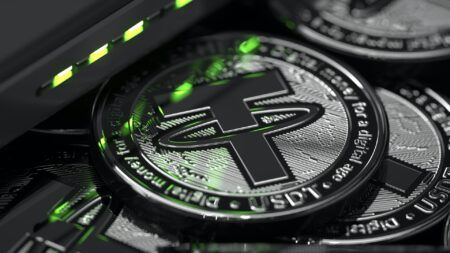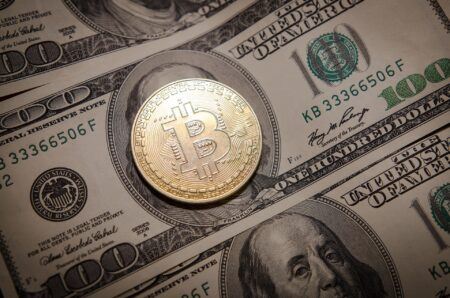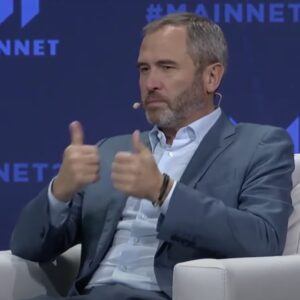Celebrity investor Kevin O’Leary (aka “Mr. Wonderful” on ABC TV series “Shark Tank“) recently explained why he is even more bullish on Ethereum than Bitcoin.
Although neither O’Leary nor his Shark Tank co-star billionaire Mark Cuban, who is the owner of the professional basketball (NBA) team Dallas Mavericks, were initially a fan of crypto, this year both “sharks” have been highly vocal and enthusaistic on this subject.
For example, on 24 December 2020, when told by Scott Wapner on CNBC’s “Squawk Box“ that Cuban no longer believes that Bitcoin is “irrelevant”, O’Leary replied:
O’Leary replied:
“You know, I know Mark quite well. He also was quoted saying he thinks bananas are a bigger common currency, and he’s probably right. I want to go to Pomp’s issue about this idea that you’re protecting your capital buying Bitcoin…
“Last March, if you owned Bitcoin you got slaughtered, and you had a lot more volatility than the S&P. My whole point is there’s a lot of interesting ideas here… This concept of a digital currency is one that would work, and my whole point is for all of us, including you Scott, who monitor and work within the financial services multi-trillion dollar global industry, is this a nothing burger? It’s not even a single cell amoeba. If you took all of the market caps, Bitcoin [is] totally irrelevant…
“And no institutional or sovereign fund investor I’ve ever talked to has said to me go index all the cryptocurrencies for me, and the reason they don’t want to own that is they fear the regulator. And watch what happens one day and I’m waiting for this one. I’m waiting for the day that one of these regulators comes down hard on Bitcoin. Grown men are going to weep when that happens. You’ll never see a loss of capital like that ever in your life. It’ll be brutal.“
However, late last month, during an interview with CNBC’s “Make It”, O’Leary had this to say about investing in crypto:
“I think there’s a difference between Dogecoin and let’s say USDC or Bitcoin or Ethereum or Solana… Within my own team, we have done a deep dive into crypto and we see value there in certain aspects of that market. We’ve increased our weighting to almost 10% of our book of our operating company into various cryptocurrencies, including USDC, Bitcoin, Ethereum, as I mentioned.“
As you probably know, Ethereum’s London network upgrade (or hard fork), the most important component of which was EIP-1559, went live on the mainnet last Thursday (August 5). Once Ethereum has fully completed its transition to a Proof-of-Stake (PoS) consensus mechanism (i.e. once “The Merge” has taken place, which is expected to occur sometime in the first half of 2022), then EIP-1559 should help ETH to become a deflationary asset.
Well, now, thanks to EIP-1559 going live, O’Leary appears even more bullish on Ethereum than he was before. In fact, in a recent video (which apparently was made on the Cameo platform, where you can pay celebrities to create short video messages for you), he said that if Bitcoin is “sound money”, then we can think of Ethereum as “ultra sound money”.
In this video, here is what O’Leary said about EIP-1559 and why it is so important:
“It introduced a very important change to monetary policy theory. Apparently, the fees that users pay to send transactions go to the miners, but after this improvement, the fees will be burned instead… When you combine this with EIP-3675, which switches the network to proof of state,
and it’s coming in a few months, Ethereum become deflationary.
“This means the number of coins in existence will begin to decrease. if Bitcoin is sound money because of the 21 million coins supply ceiling, Ethereum enjoys the same benefit now. It’s ultrasound money because there’s no supply floor… Ethereum will be thought of as a traditional business and it could be analyzed like one.”
DISCLAIMER
The views and opinions expressed by the author, or any people mentioned in this article, are for informational purposes only, and they do not constitute financial, investment, or other advice. Investing in or trading cryptoassets comes with a risk of financial loss.

